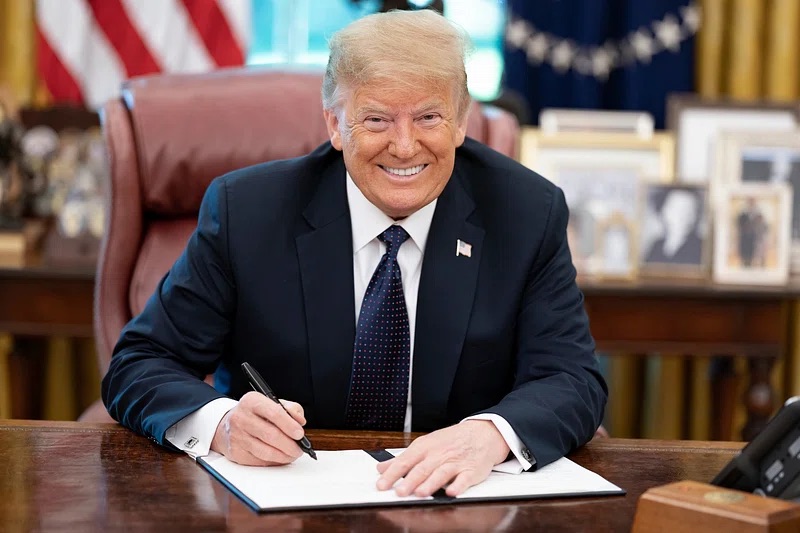
Donald Trump is projected to win the U.S. presidential election held on November 5, capturing key swing states North Carolina and Georgia which he had lost in the previous 2020 election. Various sources, including The Hill and Decision Desk HQ, have declared Trump the winner, with The New York Times projecting him to receive 306 electoral college votes, signifying a greater than 95% chance of victory. CNN has placed Trump “on the brink of victory,” and he has already addressed his supporters in Florida as the likely president-elect.
At the time of this publication, the Associated Press shows Trump with 267 electoral college votes, just three shy of the 270 needed to clinch the presidency. His main opponent, Vice President Kamala Harris, has fallen behind in critical swing states like Pennsylvania, Wisconsin, and Michigan.
Throughout his campaign, Trump made numerous promises to the cryptocurrency community, including the dismissal of Securities and Exchange Commission Chair Gary Gensler on his first day in office. He also pledged to promote Bitcoin mining in the U.S., create a strategic Bitcoin reserve, oppose the creation of a central bank digital currency (CBDC), and commute the sentence of crypto advocate Ross Ulbricht.
These commitments have stirred high hopes within the crypto industry, though there remains a degree of skepticism about the feasibility and actual implementation of these promises.
SEC Chair Gary Gensler’s Tenure and Controversies
Trump’s commitment to fire Gensler, appointed by President Joe Biden in 2021, stems from Gensler’s aggressive regulatory approach, which has included suing prominent crypto exchanges and projects. The SEC under Gensler has claimed that many cryptocurrencies are securities and must register with the commission, a stance widely rejected by the crypto community. While Gensler’s term does not end until April 2025, Trump could attempt to remove him for cause, though this would likely face legal challenges.
Among Trump’s pro-crypto stances is his support for enhancing Bitcoin mining operations within the United States and his proposal to create a “strategic Bitcoin reserve” by instructing law enforcement not to sell Bitcoin seized from criminal activities. This policy is seen as a potential means to help alleviate the national debt.
Skepticism and Criticism Within the Crypto Community
Despite the optimism some express over Trump’s crypto policies, others in the industry remain skeptical. Comments from figures like Shapeshift founder Eric Voorhees and Casa wallet founder Jameson Lopp suggest that not all of Trump’s proposals are seen as practical or based on a sound understanding of Bitcoin or economic principles more broadly.
The crypto community stands at a crossroads, with Trump’s victory potentially ushering in a new era of regulatory and operational frameworks for cryptocurrencies in the U.S. Whether these changes will manifest as promised remains to be seen, but the implications could be profound for privacy, innovation, and the overall role of digital currencies in the financial system.
The Balance of Promise and Pragmatism
While the promises made by Trump to the crypto industry are bold and could potentially drive significant growth and innovation, it is crucial for stakeholders to temper expectations with realism. The regulatory landscape for cryptocurrencies is complex and fraught with challenges. As the industry continues to evolve, the interplay between these promised policies and their practical implementation will likely define the trajectory of digital currencies in the U.S. and globally.
Featured image credit: upklyak via Freepik
Follow us for more breaking news on DMR
